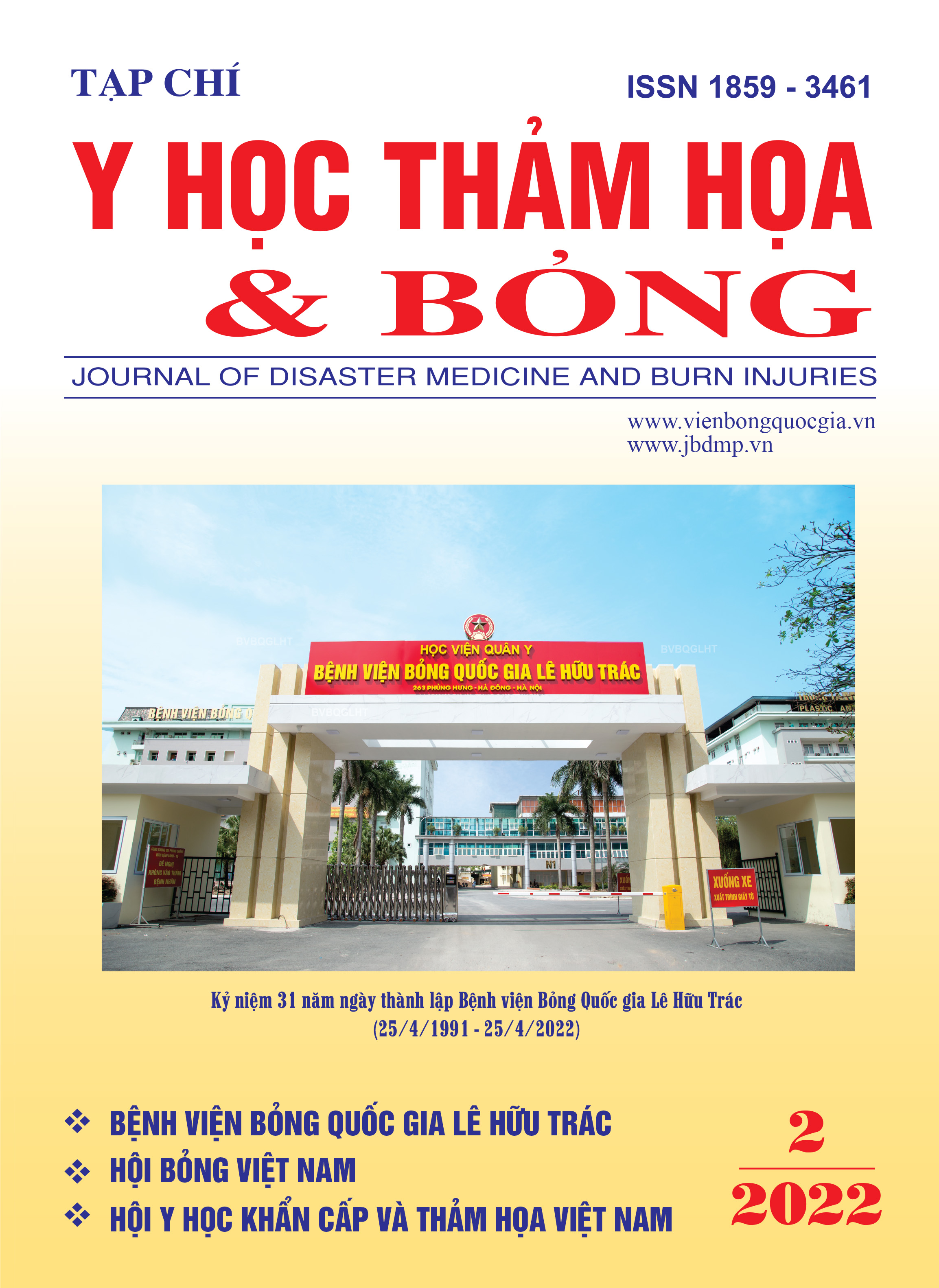Đào tạo và huấn luyện đội hỗ trợ y tế khẩn cấp
Nội dung chính của bài viết
Tóm tắt
Hiện nay, nhiều chương trình đào tạo và huấn luyện cho đội hỗ trợ y tế khẩn cấp (Emergency Medical Team - EMT) đã được xây dựng. Tuy nhiên, hầu hết các chương trình đều tập trung vào phát triển chuyên môn của mỗi cá nhân hơn là tập trung vào hiệu suất hoàn thành nhiệm vụ của cả đội EMT. Hơn nữa cũng không có một khung đào tạo nào mang tính khái quát hoặc tiêu được chuẩn hoá. Trong bài báo này đề cập đến phương pháp xây dựng khung đào tạo gồm ba bước cho đội EMT đạt tiêu chuẩn toàn cầu.
Chi tiết bài viết
Tài liệu tham khảo
1. Norton I, von Schreeb J, Aitken P, Herard P, Lajolo C. Classification and Minimum Standards for Foreign Medical Teams in Sudden Onset Disasters. World Health Organization. 2013. Available from:
2. http://www.who.int/hac/global_health_cluster/fmt_guidelines_september2013.pdf?ua=1cited 2016 March 10.
3. Aitken P, Leggat PA, Robertson AG, Harley H, Speare R, Leclercq MG. Education and training of Australian disaster medical assistance team members: results of a national survey. Prehosp Disaster Med. 2011 Feb;26(1):41-8. PubMed PMID:21838065.
4. Patterson MD, Geis GL, LeMaster T, Wears RL. Impact of multidisciplinary simulation-based training on patient safety in a pediatric emergency department. BMJ Qual Saf. 2013 May;22(5):383-93. PubMed PMID:23258388.
5. Ragazzoni L, Ingrassia PL, Echeverri L, Maccapani F, Berryman L, Burkle FM Jr, Della Corte F. Virtual Reality Simulation Training for Ebola Deployment. Disaster Med Public Health Prep. 2015 Oct;9(5):543-6. PubMed PMID:25782591.
6. Foletti M, Ingrassia PL, Ragazzoni L, Djalali A, Ripoll Gallardo A, Burkle FM Jr, Della Corte F. Combining Dedicated Online Training and Apprenticeships in the Field to Assist in Professionalization of Humanitarian Aid Workers: a 2-year Pilot Project for Anesthesia and Intensive Care Residents Working in Resource-Constrained and Low-income Countries. PLoS Curr. 2014 Jul 21;6. PubMed PMID:25642362.
7. Weaver SJ, Dy SM, Rosen MA. Team-training in healthcare: a narrative synthesis of the literature. BMJ Qual Saf. 2014 May;23(5):359-72. PubMed PMID:24501181.
8. Neily J, Mills PD, Young-Xu Y, Carney BT, West P, Berger DH, Mazzia LM, Paull DE, Bagian JP. Association between implementation of a medical team training program and surgical mortality. JAMA. 2010 Oct 20;304(15):1693-700. PubMed PMID:20959579.
9. Schor KW, Altman BA. Proposals for aligning disaster health competency models. Disaster Med Public Health Prep. 2013 Feb;7(1):8-12. PubMed PMID:24618137
10. Knutson A, Park ND, Smith D, Tracy K, Reed DJ, Olsen SL. Just-in-Time Training: A Novel Approach to Quality Improvement Education. Neonatal Netw. 2015;34(1):6-9. PubMed PMID:26803040.
11. Burkle FM. Operationalizing public health skills to resource-poor settings: is this the Achilles heel in the Ebola epidemic campaign? Disaster Med Public Health Prep. 2015 Feb;9(1):44-6. PubMed PMID:25288216.
2. http://www.who.int/hac/global_health_cluster/fmt_guidelines_september2013.pdf?ua=1cited 2016 March 10.
3. Aitken P, Leggat PA, Robertson AG, Harley H, Speare R, Leclercq MG. Education and training of Australian disaster medical assistance team members: results of a national survey. Prehosp Disaster Med. 2011 Feb;26(1):41-8. PubMed PMID:21838065.
4. Patterson MD, Geis GL, LeMaster T, Wears RL. Impact of multidisciplinary simulation-based training on patient safety in a pediatric emergency department. BMJ Qual Saf. 2013 May;22(5):383-93. PubMed PMID:23258388.
5. Ragazzoni L, Ingrassia PL, Echeverri L, Maccapani F, Berryman L, Burkle FM Jr, Della Corte F. Virtual Reality Simulation Training for Ebola Deployment. Disaster Med Public Health Prep. 2015 Oct;9(5):543-6. PubMed PMID:25782591.
6. Foletti M, Ingrassia PL, Ragazzoni L, Djalali A, Ripoll Gallardo A, Burkle FM Jr, Della Corte F. Combining Dedicated Online Training and Apprenticeships in the Field to Assist in Professionalization of Humanitarian Aid Workers: a 2-year Pilot Project for Anesthesia and Intensive Care Residents Working in Resource-Constrained and Low-income Countries. PLoS Curr. 2014 Jul 21;6. PubMed PMID:25642362.
7. Weaver SJ, Dy SM, Rosen MA. Team-training in healthcare: a narrative synthesis of the literature. BMJ Qual Saf. 2014 May;23(5):359-72. PubMed PMID:24501181.
8. Neily J, Mills PD, Young-Xu Y, Carney BT, West P, Berger DH, Mazzia LM, Paull DE, Bagian JP. Association between implementation of a medical team training program and surgical mortality. JAMA. 2010 Oct 20;304(15):1693-700. PubMed PMID:20959579.
9. Schor KW, Altman BA. Proposals for aligning disaster health competency models. Disaster Med Public Health Prep. 2013 Feb;7(1):8-12. PubMed PMID:24618137
10. Knutson A, Park ND, Smith D, Tracy K, Reed DJ, Olsen SL. Just-in-Time Training: A Novel Approach to Quality Improvement Education. Neonatal Netw. 2015;34(1):6-9. PubMed PMID:26803040.
11. Burkle FM. Operationalizing public health skills to resource-poor settings: is this the Achilles heel in the Ebola epidemic campaign? Disaster Med Public Health Prep. 2015 Feb;9(1):44-6. PubMed PMID:25288216.


